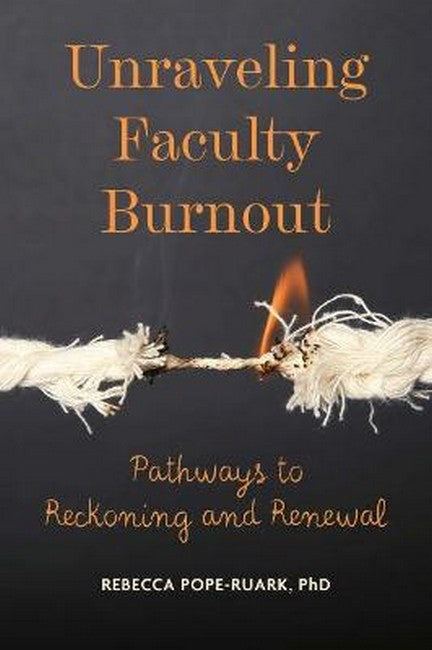A timely book about assessing, coping with, and mitigating burnout in higher education. Faculty often talk about how busy, overwhelmed, and stressed they are. These qualities are seen as badges of honor in a capitalist culture that values productivity above all else. But for many women in higher education, exhaustion and stress go far deeper than end-of-the-semester malaise. Burnout, a mental health syndrome caused by chronic workplace stress, is endemic to higher education in a patriarchal, productivity-obsessed culture. In this unique book for women in higher education, Rebecca Pope-Ruark, PhD, draws from her own burnout experience, as well as collected stories of faculty in various roles and career stages, interviews with coaches and educational developers, and extensive secondary research to address and mitigate burnout. Pope-Ruark lays out four pillars of burnout resilience for faculty members: purpose, compassion, connection, and balance. Each chapter contains relatable stories, reflective opportunities and exercises, and advice from women in higher education. Blending memoir, key research, and reflection opportunities, Pope-Ruark helps faculty not only address burnout personally but also use the tools in this book to eradicate the systemic conditions that cause it in the first place. As burnout becomes more visible, we can destigmatize it by acknowledging that women are not unraveling; instead, women in higher education are reckoning with the productivity cult embedded in our institutions, recognizing how it shapes their understanding and approach to faculty work, and learning how they can remedy it for themselves, their peers, and women faculty in the future. Contributors: Lee Skallerup Bessette, Cynthia Ganote, Emily O. Gravett, Hillary Hutchinson, Tiffany D. Johnson, Bridget Lepore, Jennifer Marlow, Sharon Mitchner, Marie Moeller, Valerie Murrenus Pilmaier, Catherine Ross, Kristi Rudenga, Katherine Segal, Kryss Shane, Jennifer Snodgrass, Lindsay Steiner, Kristi Verbeke

